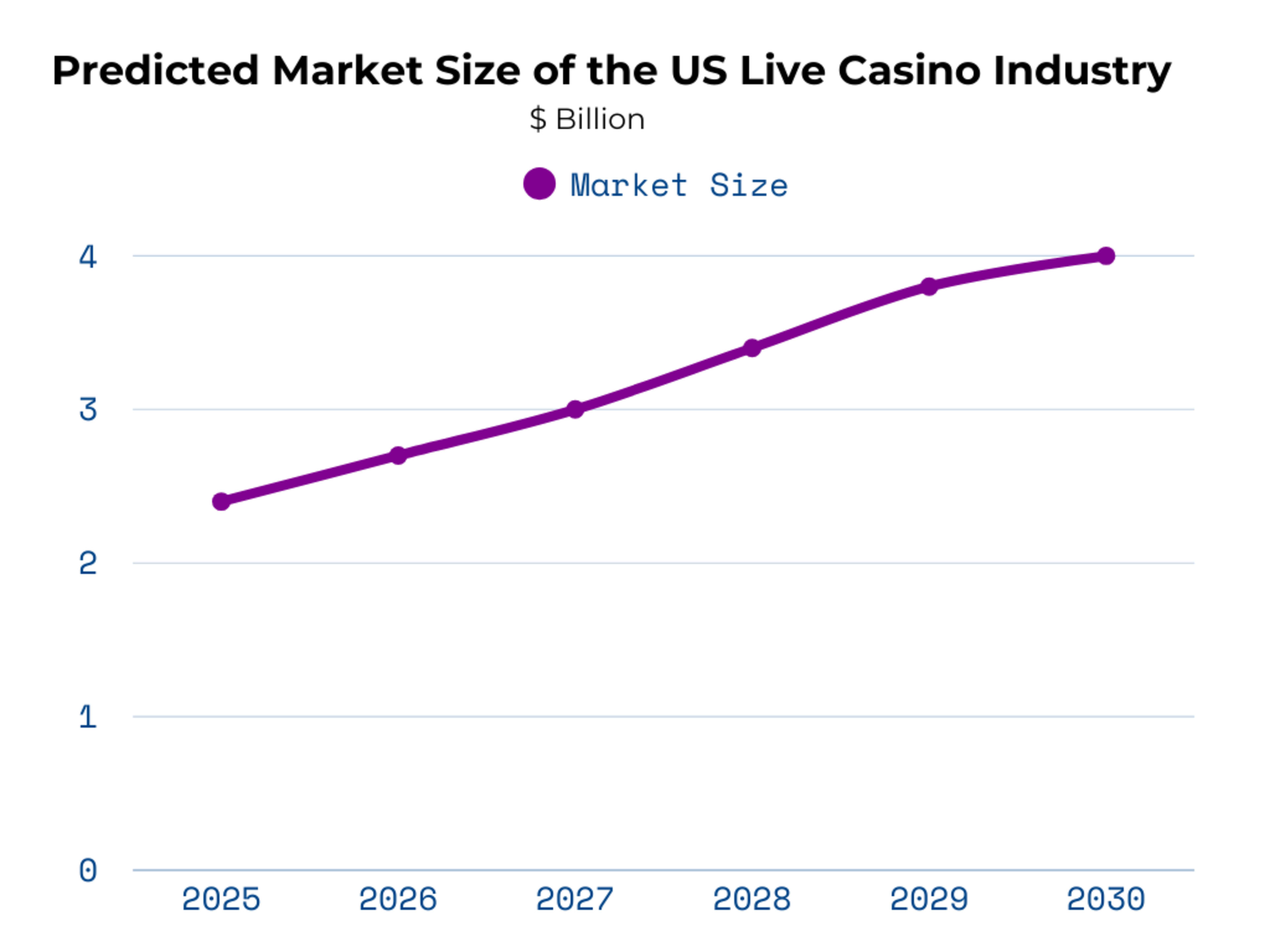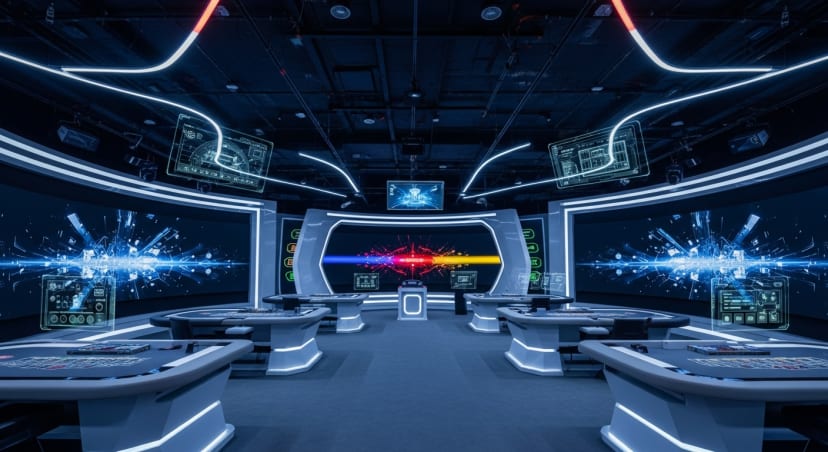Considering a flutter at an online casino in Ireland, where the familiar clatter of chips and friendly 'craic' of a dealer are increasingly giving way to slick digital screens and automated thrills? That's the reality as Electronic Table Games (ETGs) surge ahead. While the US market is booming, the shift towards these digital experiences is a global phenomenon, and Ireland is no exception. In this piece, we'll dive into why ETGs are winning players over, backed by insights relevant to the Irish market. Whether you're a seasoned gamer, an industry observer, or just curious, get ready for a glimpse into the future of casino gaming.
Why ETGs are Gaining Ground on Live Dealers in Irish Casinos
The move from live casino dealers to ETGs is accelerating, driven by player preferences, efficiency gains, and the appeal of 24/7 accessibility. Globally, the ETG market is projected for significant growth, as casinos look for ways to offer seamless gaming experiences. But what's driving this in Ireland specifically?
The Appeal of Convenience and Cost-Effectiveness
The modern player in Ireland often seeks flexibility and instant gratification. ETGs offer precisely that, providing a 'play anytime' experience without the need to wait for a live dealer or a seat at a busy table. This immediacy is a massive draw, especially for popular table games like blackjack and roulette. Furthermore, from an operational standpoint, ETGs can be more cost-effective, reducing the reliance on staffing for continuous table operation. This efficiency allows casinos to potentially offer more competitive stakes and cater to a wider audience.

What This Means for Irish Casino Players
Across Ireland's vibrant casino scene, from lively Dublin venues to more widespread online platforms accessible to Irish players, 2024 and 2025 have seen a notable embrace of electronic gaming options. This isn't just about replicating traditional games; it's about enhancing the player experience through technology.
The core benefit for players in Ireland enjoying these ETGs is the sheer volume of play possible. Imagine being able to jump into a game of roulette or try your hand at a virtual blackjack table instantly, without any fuss. This increased throughput means more opportunities to play your favourite games, often with slightly different betting interfaces that can be more intuitive for some. It's about providing a smoother, more accessible gaming journey for everyone, from novices to seasoned punters.
Furthermore, Irish players can expect ETGs to feature in many of the top online casino platforms available here. These platforms are increasingly investing in high-quality digital interfaces that mimic the feel of a physical casino but with the added advantages of speed and convenience. Think of crisp graphics, responsive controls, and seamless transitions between games – all designed to keep you engaged whether you're at home or on the go.
The trend towards ETGs is a clear sign of the evolving casino landscape. For players in Ireland, this means more choice, greater accessibility, and a continuously improving gaming experience. As technology advances, we can expect even more innovative features to be rolled out, further blurring the lines between traditional and digital casino entertainment. Keep an eye on new online casinos launching here in Ireland; many are adopting these advanced ETG formats from the start, aiming to attract a modern, tech-savvy audience looking for the best of both worlds.
Cost Breakdown: ETGs vs. Live Dealers – The Numbers Don't Lie
Money talks in high roller live casinos, and ETGs scream savings. Traditional live dealers rack up high labor costs—think $150-$200 per hour in wages alone—while ETGs slash overheads by up to 50% through minimal staffing and faster game speeds. Here's a head-to-head comparison:
Player Preferences: Who Loves ETGs and Why?
The demographics around ETGs reveal a clear generational divide.
- Younger Players (18–34 years): This age group represents the overwhelming bulk of ETG adoption, accounting for over 95% of electronic gamers in 2025. For Gen Z and younger Millennials, ETGs align perfectly with their digital-native lifestyles. They value the privacy of terminals, the ability to learn without public embarrassment, and the low-stakes bets ($5–10) that make experimentation more affordable. These players are also accustomed to mobile gaming and online interfaces, so transitioning into ETGs feels natural.
- Millennials (30s–40s): While slightly older, Millennials dominate the online gambling sector and show a strong preference for ETG blackjack and baccarat, particularly for solo play sessions. Their busy lifestyles make quick, on-demand gaming appealing, and ETGs meet this need without the social expectations of live dealer tables.
- Older Players (45+ years): This group continues to gravitate toward live dealers. For them, the allure is not speed or efficiency but the social atmosphere—dealer banter, camaraderie with tablemates, and the traditional casino experience. However, some older players have begun exploring ETGs for their accessibility and reduced intimidation factor, particularly when learning new live casino games.
Culturally, ETGs are transforming the casino environment. The old image of rowdy, crowded tables is being replaced by tech-driven zones, sleek electronic setups, and quieter, more individualized play. This reflects a generational shift in entertainment, where personalization and technology are now central.

Operator Insights: What Casino Bosses Are Saying About ETG Strategy
Casino executives have become vocal advocates of ETGs, often highlighting two key drivers: financial resilience and audience expansion.
- Financial Growth: Multiple top-rated live casino platforms explain that they are leveraging ETGs to drive profitability during a time when labor costs are unpredictable and staffing is challenging. By reducing dealer reliance, casinos enjoy higher margins per table and greater throughput per hour.
- AI Integration: Another casino leader emphasizes that AI and machine learning are transforming ETG operations. AI is not only used for marketing and player retention but also for responsible gambling tools—detecting risky patterns and offering real-time interventions.
- Strategic Agility: With ETGs, casinos can reconfigure floors more quickly, adapt to peak visitor times, and attract tech-savvy younger crowds without alienating traditional players. This adaptability has become a cornerstone strategy in 2025’s volatile economy.
Cutting-Edge Innovations: ETGs Get Smarter in 2025
2025 brings ETG wow-factors like AI-personalized betting in blackjack and AR overlays for immersive roulette. Hybrid systems blend live wheels with digital interfaces, while VR dealers elevate baccarat. These tech leaps bridge the authenticity gap, making ETGs feel alive without the human element.
The Employment Equation: Jobs Gained, Lost, and Transformed
ETGs disrupt jobs—potentially cutting dealer roles by 20-30%—but the industry forecasts 17% overall growth through 2031, creating tech maintenance and analytics positions. In 2025, unions push for reskilling, turning potential losses into opportunities. Economically, it's a mixed bag: fewer low-skill jobs, more high-tech ones.
Global Perspective: US vs. Macau and Europe in the ETG Race
The US is catching up fast, but Macau leads with ETGs generating 37% more profit than traditional tables, post-2019 adoption. Europe's slower, favoring live dealers culturally, though the UK ramps up for compliance. US casinos blend both, using ETGs for efficiency while preserving social hubs— a balanced overtake.









